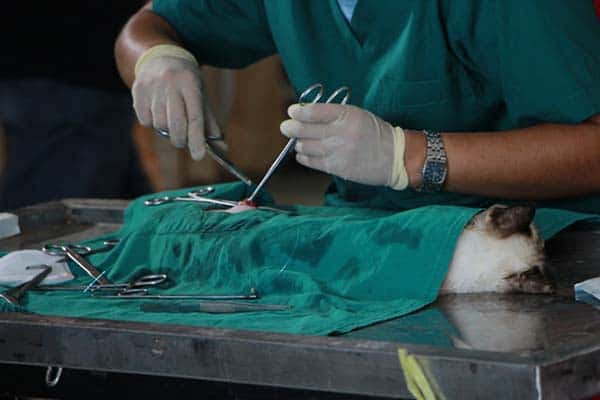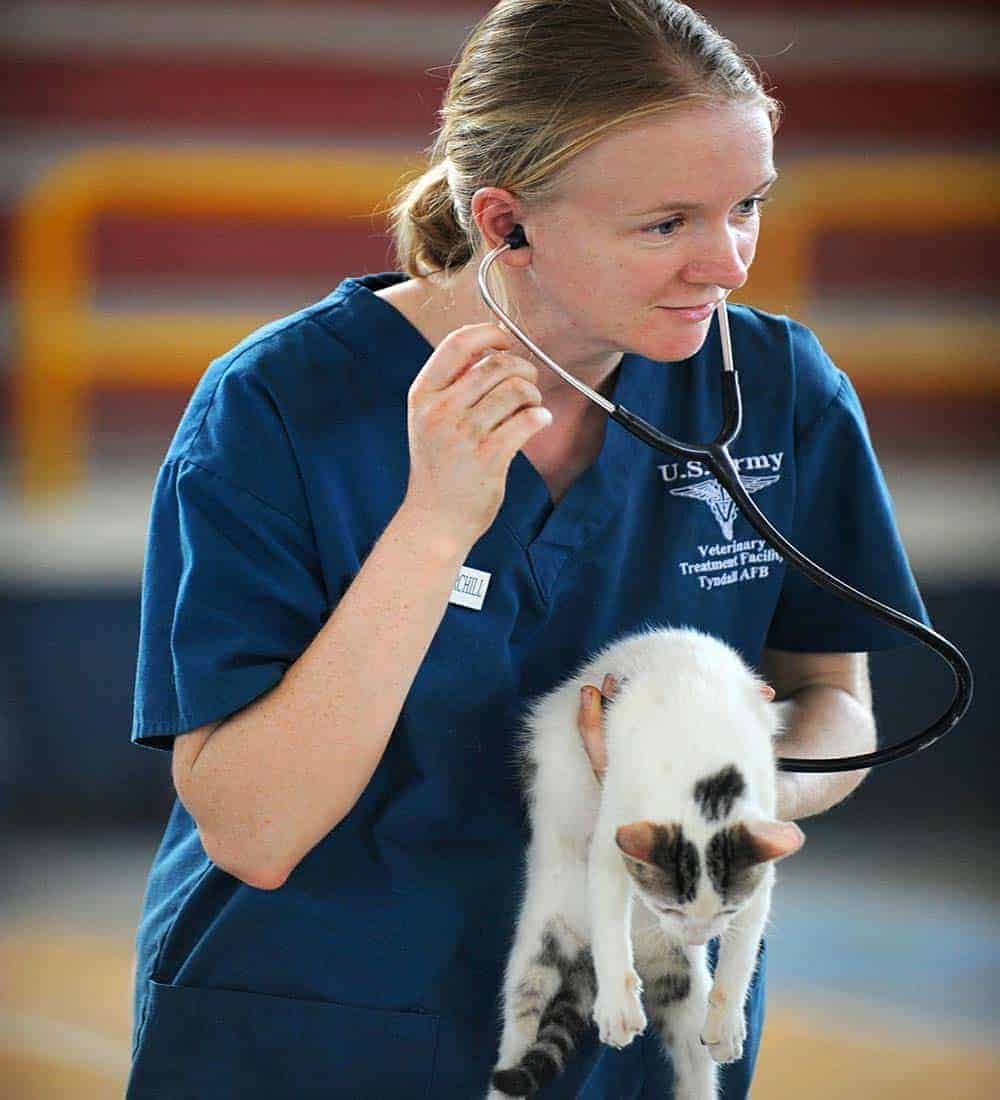Veterinarians are essential health professionals. They are people who have gone through the four walls of a higher institution to acquire practical and theoretical knowledge and training to be able to treat animals. But their contribution to society is more than just treating cats and dogs. Vets offer more than that.
So, how do veterinarians contribute to society?
Veterinarians are trained personnel that treat and ensure that animals are in good health. These animals range from pets and those in the wild, including zoos. And by protecting and ensuring the wellbeing of animals, vets are contributing immensely to society. The benefits of animals include food, clothing, research, education, companionship, and recreation. So, veterinarians help to ensure public health, food safety, research, and protection of our environment.
Continue reading for more information on the topic!
Different Ways Veterinarians Contribute Immensely To Society
Veterinarians contribute to society in diverse ways. I earlier mentioned ways they contribute to society as protection of the environment, ensuring public health, food safety, researches, and educating the public.
So, the question many would be asking is, how do these help to better our society? How do vet doctors contribute positively to society via these means? Let’s take a quick look at some critical explanations for this.
1. Research and education
Veterinarians engage in research for the benefit of society. The research may be about animals but are invariably crucial to humans. Through their findings, they can educate the public, find better ways to diagnose, treat, and prevent diseases.
As a pet owner, you cannot deny that the instructions from your vet made managing your pets much simpler. So, think about what would have happened if there were no veterinarians to offer such advice. Things would have been worse, and most of us may end up losing our pets.
But through research, veterinarians were able to come up with best practices that would ensure the health and wellbeing of animals. They educate the public about their findings to ensure animals, irrespective of whether they are pets or in the wild, remain in a good state of health.
Vets also help to prevent the spread of zoonotic diseases. Their findings help people in society to take precautionary measures to avoid being infected by such diseases. An example of such zoonotic disease (diseases that spread from animals to humans) that was catastrophic is Ebola.
In the case of Ebola, veterinarians teamed up with other health experts to identify the structure, as well as the mode of transmission of the disease. Their research also helped to tackle the spread of the deadly virus.
However, Ebola is just one of many cases that shows how vital veterinarians are to society. They have always been massively involved in the spread of information and treatment of zoonotic diseases, including other illnesses that affect animals.
2. Assist livestock farms and farmers
Animals serve as sources of food for humans. We consume them as meat and for other purposes. To the livestock farmer, a veterinarian is a helper. Without their expertise, going into livestock business would have been difficult.
When a veterinarian identifies a diseased animal that could infect other animals on the farm and advise the farmer on what needs to be done, and they could immediately quarantine and treat the animal in isolation.
So, vets help livestock farmers to remain in business. And with the livestock farm flourishing, there will be a regular supply of healthy meat to the society, and those working on the farm will not lose their means o livelihood.
3. Food safety
The availability of safe food is what keeps every society going. Individuals will be hail and hearty and would be more productive. Veterinarians, together with other health experts, play a significant role in ensuring food safety. So, they are invariable helping society by making sure that food, which is essential to every human, is safe for consumption.
At the farm, veterinarians collaborate with farmers to ensure that animals are kept in the most hygienic state. They suggest the best farm practices to farmers to ensure nothing goes wrong.
In abattoirs, veterinarians may suggest safe ways to slaughter and process animals for consumption. The early detection and treatment of diseases is another way veterinarians contribute to society.
Veterinarians provide training, advice, and information to livestock farmers on ways they can prevent, control, and eliminate any food safety hazard. These include pesticides and drug residues, environmental contaminants, including mycotoxins. Vets ensure that animal feeds are safe for the animals too. Hence, their presence is highly needed in animal husbandry, feed production, and drug-producing firms.
They also ensure the effective and safe use of veterinary drugs and biological products. An example includes antimicrobial used in livestock farms or animal husbandry. Through their intervention, the risk of animals developing any antimicrobial resistance to the veterinary drug is reduced to the barest minimum. Another role vets play in society is ensuring that food, particularly those of animal origin, is without drug residues.
4. Protect the environment
Animals help to save our planet. So, they are vital for a healthy environment. Let’s consider dogs, for example. They help dig up and expose the soil to air and burying food, including bones, wherever they dig up.
When dogs place bones and food into the soil, they are invariably helping to enrich the environment. Besides dogs, other animals help to protect the environment. But by and large, all animals play a critical role in the ecosystem.
Some animals help to pull out nutrients from the cycle, while there are some that help in the carbon cycle, decomposition, and nitrogen cycle.
Now let’s take a look a look at how some animals help to ensure the stability of the environment.
- Dogs: Dogs make a great companion, but outside that, they also provide other benefits that make life easy for humans. One feature that makes dogs beneficial to our environment is their high sense of smell. This extra sense of smell they have can help researchers in diverse ways, such as identifying animals and plants that could be used for further research work. They are also popularly used by law enforcement agents to detect bombs and individuals carrying illegal drugs.
- Bees:Bees help with pollination, so are responsible for most of the food we consume. In short, they help in the pollination of one-third of the foods we consume.
- Sea lions: These sea mammals are super intelligent and useful. You can train them to monitor conditions deep down the sea. Sea lions can also travel (deep down the sea anyway) to places that would be too risky for humans. And in most cases, scientists attach specialty equipment on them to monitor factors like water pressure, salinity, including temperature.
The thing is every animal has something to offer. In other words, all animals contribute somehow to the sustainability of the planet. And what veterinarians do is ensure that animals, whether wounded or sick, are given proper treatment. Even the ones captured and kept in zoos are taken proper care of by vets to ensure they remain alive and healthy.
5. Public health
Veterinarians get themselves involved in everything that concerns food safety. They even go as far as issuing health certificates to producers so that food exported to other countries will have the required standard and be accepted. The document indicates that the product satisfies both food safety and animal health standards, too.
Another incredible way vets ensure public health is the inspection of slaughterhouses. They inspect live animals before slaughter (ante-mortem) and the carcass after slaughtering (post-mortem).
However, the inspection helps vets to sustain their surveillance network, which allows them to identify zoonotic and other animal-related diseases before things get out of hand. From their findings, they educate people on how to identify or avoid being infected by these zoonotic diseases.
The inspection that veterinarians carry out in slaughterhouses helps to ensure that animals slaughtered, including their byproducts, are suitable for their intended uses. If they are not, the vets may notify the health bodies to take action in the best interest of those in society.
What Would Happen If We No Longer Have Veterinarians?

Most professionals do not get enough accolades from the people they claim to serve, and vets are one of them. We may not realize the importance of having veterinarians around until we require their services.
For the records, vets are more than helpers to dogs and cats. I know the first thing that comes to mind when our precious pets get sick is to visit a vet clinic. But here’s what you should know, vets, play more critical roles in society than treating cats and dogs.
So what would happen if we no longer have vets?
- Pets will no longer enjoy the help they get when they fall sick or get injured. The pet owners would be affected emotionally and have to deal with an unhappy pet.
- Abused animals won’t have someone to stand in for them.
- Humans will not be able to prevent, eliminate, or detect zoonotic diseases, which could wipe out the entire human race or a large population of people.
- Livestock farmers will no longer get the help they seek to ensure the wellbeing of their animals.
Conclusion
So, now you know the answer to the question, “how do veterinarians contribute to society?” The bottom line is vets are essential and play a crucial role in our environment. Besides treating and providing information regarding the management of pets, they also contribute immensely in ensuring public health, food safety, and protection of our environment. So, veterinarians are important people and should have respect they deserve.
You May Like These Articles As Well:
Why Are Psychiatrists Called Shrinks?






















Add Comment